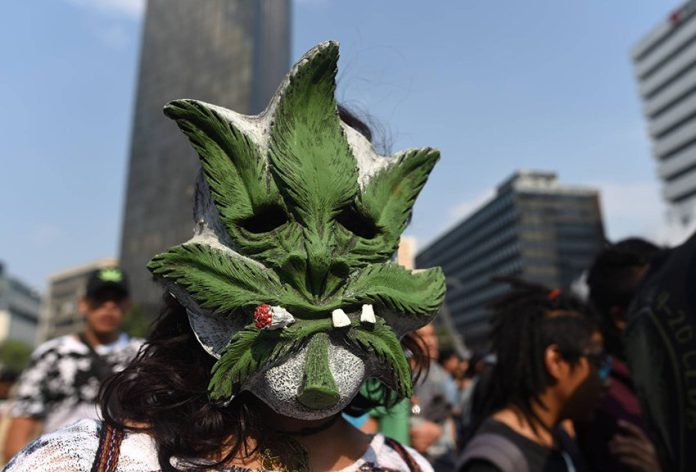The Supreme Court issued two rulings yesterday that paved the way for the legalization of marijuana for recreational use.
One ruling granted an amparo or injunction to a complainant to allow the cultivation of marijuana for personal use while the other decision allowed a second plaintiff to consume the drug.
The two decisions followed three similar ones between 2015 and 2017, establishing a precedent that a total ban on pot is unconstitutional.
Under Mexican law, five similar rulings on a matter establish a standard that applies more broadly.
The constitutional precedent that has now been set effectively leaves it to lawmakers to regulate the consumption of marijuana.
The court ordered that complainants in individual cases be allowed to use marijuana for recreational purposes, declaring that adults have a fundamental right to choose their recreational activities without interference from the state.
“That right is not absolute, and the consumption of certain substances may be regulated, but the effects provoked by marijuana do not justify an absolute prohibition of its consumption,” the ruling said.
The court ordered the Federal Commission for Protection Against Sanitary Risk (Cofepris) to authorize the complainants to use marijuana but not to commercialize it.
While the court’s rulings technically don’t legalize recreational use, “the existence of five precedents in the same vein on the subject” establish that courts must allow it.
However, an individual will still be required to press his or her case in the judicial system if charged with marijuana consumption.
Mexico United Against Crime, a group that opposes the prohibition of drugs, said the Supreme Court’s latest rulings “open the door to the regulation of cannabis” and confirm that “Mexico must move toward the regulation of drugs to improve conditions of justice and peace in the country.”
The group urged Congress to act on the issue.
“The Supreme Court has done its job . . . The responsibility for issuing the corresponding regulation falls on Congress,” the group’s director general, Lisa Sánchez, said in a statement.
Officials in president-elect López Obrador’s incoming government have indicated that they could legalize marijuana and other drugs as part of a strategy to fight poverty and crime.
Future interior secretary Olga Sánchez Cordero, a former Supreme Court judge, said in July that López Obrador had given her a “blank check” to explore the possibility of legalizing drugs as well as any other measures that could help restore peace.
Source: Associated Press (en), Reuters (en)
